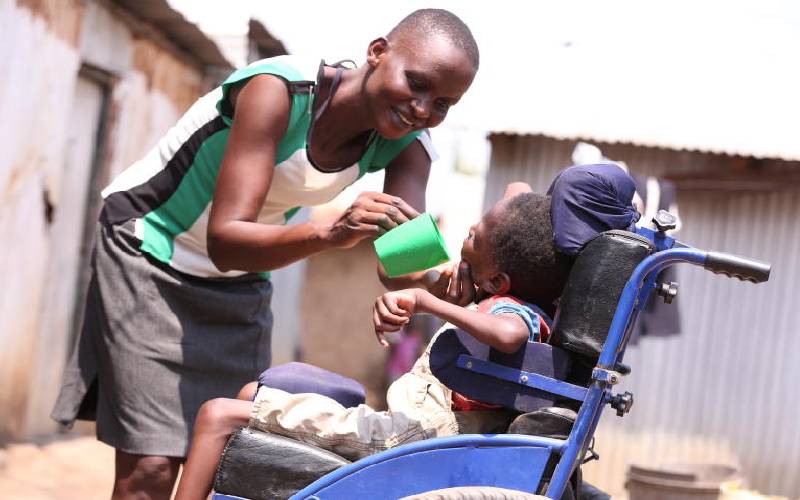×
The Standard e-Paper
Home To Bold Columnists

Lilian Achieng, 35, a caregiver to her cerebral palsy daughter in the past six years. [Collins Oduor, Standard]
One bright May morning, Lilian Achieng’ left her children under the care of their father - her husband - to run an errand. He was gone by the time she returned home.